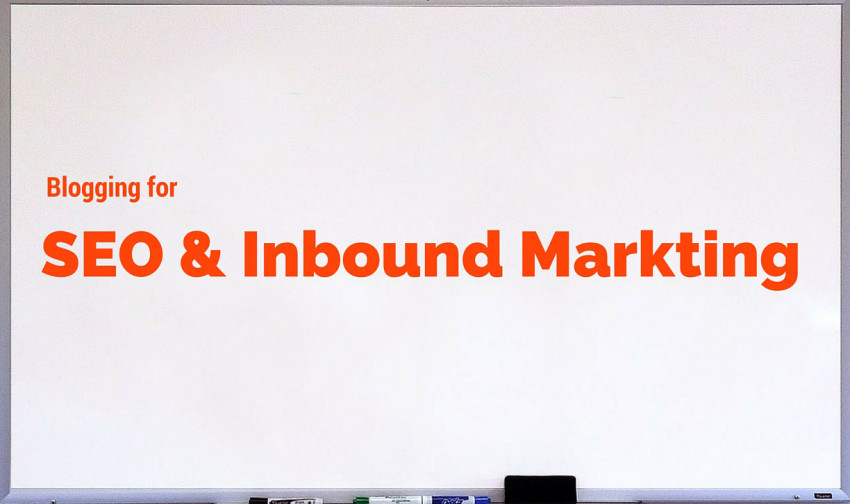Blogging for SEO & Inbound Marketing

Blogging for SEO and inbound marketing
For something that started out as a bunch of lonely people's online diaries, blogging has become big. Huge, in fact – to the point that even businesses are deeply invested in it. What very few people stop to explain is why it should be so.
Before you dip your toes into the world of blogging (or continue to spend energy splashing around in it), you might want to know the good it's doing your business. Here are the two major areas...
SEO
The acronym 'SEO' elicits a tech-phobic shiver from a lot of people, but the truth is search engine optimisation has become as much art as science in the last ten years. A big part of good SEO is writing content for the user.
'The content of a page is what makes it worthy of a search result position,' say Moz, one of the SEO industry's leading commentators. 'It is what the user came to see and is thus extremely important to the search engines.'
Content has become even more important since Google's algorithm Panda and Penguin updates. These two updates were essentially an overhaul of how Google ranked search results. One of the biggest changes was how sites with bad content were treated – they were booted to the back of the bus. Sites with good content found themselves at the top.
For SEO experts, it was pretty much a shining light over 'content' as the key factor in ranking well, and all of them have changed their strategies accordingly.
What sort of content are we talking about here? Well, there's regular page content, but that's rarely going to change. What will change is content that's updated on a regular basis – and that's where your blog comes in.
Inbound marketing
Pleasing the robots of Google isn't the ultimate goal: luring your target market is. This is where blogging intersects with your inbound marketing strategy. Inbound marketing is about attracting, converting and keeping customers. Note the first and most important point: attracting. In the digital world, there are two complications in doing this: first, you don't have your attractive real-world storefront to work with, and second, people are sick of being told to 'buy, buy, buy!'
A lot of marketers fought against these two factors for a long time. Eventually, they realised the way forward was to do what everyone else on the internet is doing: offer up interesting information, freely. That's where blogging came in.
Why it Works
The strategy works well because it achieves two things at once. A good blog post will catch attention – say, with a title like '3 wines that will change your life' – and then build a relationship with the reader by answering their questions, building a rapport through the writing style, and tempting them to read other posts. It's really like starting up a conversation at a party.
Bonus round: Blogging must be a cure for everything!
To put it another way: no, we're not saying choosing to blog is a cure-all for your digital marketing woes. A blog needs to be good to do its work properly, and that means:
*it's engaging
*it's constantly updated
*it really speaks to your targets.
If you do these things, blogging is a valuable part of your online strategy.

